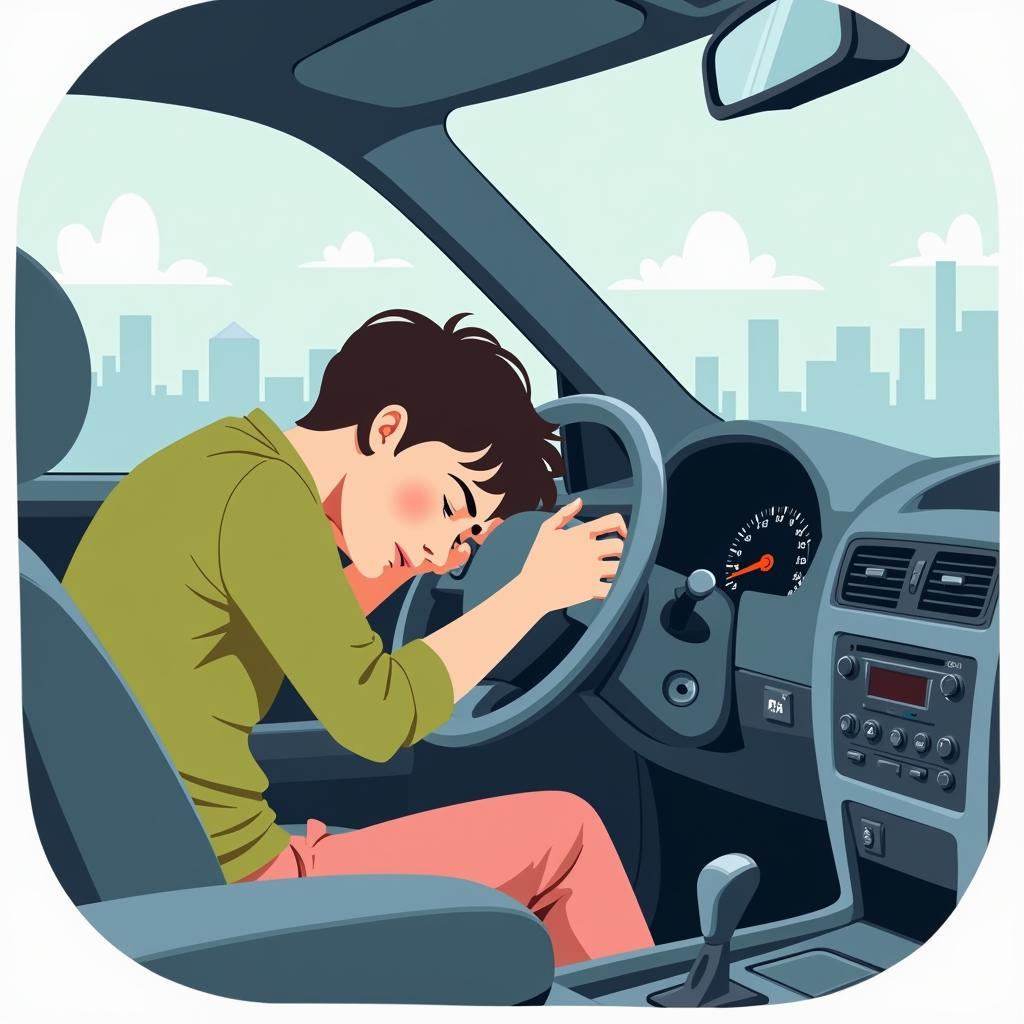Driving requires focus, and bipolar disorder can sometimes make that difficult. This article explores the challenges individuals with bipolar disorder may face while driving, and offers practical tips for managing these issues to ensure safer driving experiences.
Understanding the Impact of Bipolar Disorder on Driving
Bipolar disorder, characterized by significant mood swings between mania and depression, can impact various aspects of life, including driving. These mood fluctuations can create unique challenges behind the wheel.
How Manic Episodes Affect Driving
During manic episodes, individuals might experience:
- Impulsivity and risk-taking: Leading to speeding, aggressive driving, and ignoring traffic laws.
- Racing thoughts and distractibility: Making it difficult to concentrate on the road.
- Inflated self-esteem and overconfidence: Resulting in a false sense of security and impaired judgment.
- Decreased need for sleep: Causing fatigue and drowsiness while driving.
The Effects of Depressive Episodes on Driving
Depressive episodes can also pose driving challenges:
- Fatigue and lack of energy: Making it difficult to stay alert and responsive.
- Difficulty concentrating and making decisions: Slowed reaction times and impaired judgment.
- Feelings of hopelessness and worthlessness: Potentially leading to reckless driving or suicidal thoughts behind the wheel.
- Increased anxiety and irritability: Making driving a stressful experience.
 Bipolar Disorder Depressive Episode Driving Risks
Bipolar Disorder Depressive Episode Driving Risks
Strategies for Safe Driving with Bipolar Disorder
While bipolar disorder can present obstacles to safe driving, implementing these strategies can significantly mitigate risks:
- Medication Adherence: Consistent medication as prescribed by a psychiatrist is crucial for managing mood swings and maintaining stability.
- Lifestyle Management: Regular sleep, a healthy diet, and stress reduction techniques can help regulate mood and improve focus.
- Self-Awareness: Recognize early warning signs of mood episodes and avoid driving when experiencing significant symptoms.
- Support System: Involve family members or friends in monitoring driving behavior and providing transportation when needed.
- Professional Guidance: Consult with a therapist or psychiatrist for strategies specific to managing driving challenges related to bipolar disorder.
Seeking Professional Help for Driving Concerns
Don’t hesitate to seek professional help if you or a loved one with bipolar disorder is struggling with driving safely. A mental health professional can provide personalized guidance and support.
“Recognizing the impact of bipolar disorder on driving is the first step towards ensuring safety on the road,” says Dr. Emily Carter, a renowned psychiatrist specializing in mood disorders. “Open communication with healthcare providers and implementing appropriate strategies can significantly reduce risks and promote responsible driving practices.”
Focus Problems with Bipolar Disorder and Driving: A Summary
Driving with bipolar disorder requires careful management. Understanding how both manic and depressive episodes affect driving is crucial. By following the strategies outlined, individuals with bipolar disorder can take proactive steps to improve safety and maintain their driving privileges. Don’t hesitate to connect with us at AutoTipPro for further support. You can reach us at +1 (641) 206-8880 or visit our office at 500 N St Mary’s St, San Antonio, TX 78205, United States.
“Consistent self-monitoring and proactive communication with healthcare professionals are essential for ensuring safe driving practices for individuals with bipolar disorder,” adds Dr. Michael Davis, a leading expert in behavioral health and transportation safety.
FAQ
- Can someone with bipolar disorder drive safely? Yes, with proper management and support, many individuals with bipolar disorder can drive safely.
- What are the biggest driving risks during a manic episode? Impulsivity, risk-taking, and distractibility are major concerns during manic episodes.
- How can family members help a loved one with bipolar disorder drive safely? Open communication, encouragement to seek professional help, and offering alternative transportation are helpful.
- Are there legal restrictions on driving with bipolar disorder? Regulations vary depending on the jurisdiction, but it’s essential to comply with all licensing requirements and disclose any medical conditions that could impact driving ability.
- Where can I find more information about bipolar disorder and driving? Mental health organizations and transportation safety agencies can provide valuable resources.
- What should I do if I’m concerned about my driving abilities due to bipolar disorder? Talk to your doctor or psychiatrist immediately. They can assess your situation and recommend appropriate strategies.
- How does medication help with driving for people with bipolar disorder? Medication helps stabilize mood swings, reducing the likelihood of manic or depressive episodes that can impair driving ability.




Leave a Reply